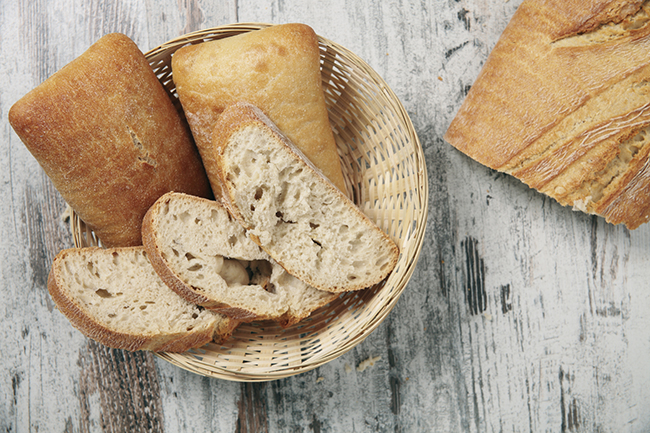Some gluten-free foods such as bread and flour will remain available on prescription in England following a public consultation, the government has announced.

Some gluten-free foods such as bread and flour will remain available on prescription in England following a public consultation, the government has announced.
However, gluten-free products from some categories of food will no longer be available for prescribing. These are:
- Biscuits
- Cereals
- Cooking aids
- Grains/flours
- Pasta
The consultation was held in 2017 after the government sought savings from the £22.4 million a year spent by the NHS prescribing gluten-free foods.
An option to stop prescribing gluten-free products altogether faced concerted opposition, including a campaign from the charity Coeliac UK which fought to ensure the products remained on prescription for people with coeliac disease.

Consultation
The consultation drew 7,941 responses. Of these, 81.3% backed keeping gluten-free foods on prescription and 70.3% supported restricting the range of products available.
Coeliac UK says the decision is good news for people with coeliac disease and “recognises the need for this important ongoing support in managing a lifelong autoimmune disease”.
Chief executive, Sarah Sleet, says in a statement: “We are pleased the Department of Health and Social Care listened carefully to the consultation responses including the charity’s evidence built up over many years around the issues of cost, availability and nutritional contribution of gluten-free staples in managing a lifelong gluten-free diet.”

Limited range
The outcome means that patients will in future be able to access a limited range of gluten-free breads and flour ‘mixes’ which can include ingredients such as rice, tapioca and almond flours, as well as nuts and seeds.
The majority of people who responded to the consultation wanted bread and flour mixes to stay on prescription because of patchy availability of these products in shops. They said gluten-free ‘mixes’ offered a flexible option to make a variety of foods.
Parents of children with coeliac disease wanted bread to remain on prescription so their children could take sandwiches to school in their packed lunch and not feel “different” to their peers.
NHS budgets
Coeliac UK says the government’s decision to restrict gluten-free items on prescription to just bread and flour mixes is “reasonable given the financial challenges faced by the NHS”.
The British Dietetic Association (BDA) is welcoming the decision although disappointed that pasta will no longer be available on prescription.
Lisa Vokes, chair of the BDA’s Gastroenterology Specialist Group, comments: “While we recognise that CCGs [clinical commissioning groups] are under financial pressure, we continue to believe that the relatively low cost of gluten-free prescribing is money well spent.
“Adherence to a strict gluten-free diet is the only treatment available for patients with coeliac disease and the long-term complications of the disease can be serious.”
